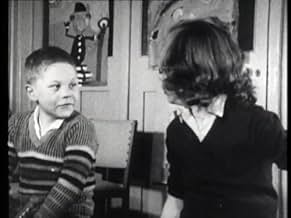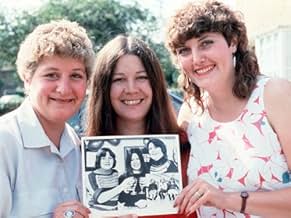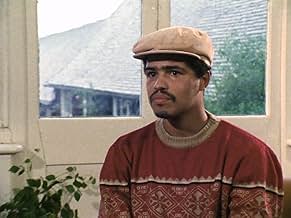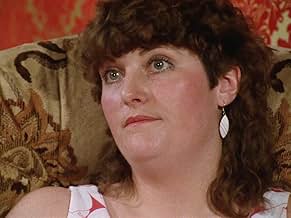28 Up
- Fernsehfilm
- 1984
- 2 Std. 16 Min.
IMDb-BEWERTUNG
8,1/10
3226
IHRE BEWERTUNG
Füge eine Handlung in deiner Sprache hinzuThis eye-opening episode uncovers human nature and the desire to survive and succeed in all its heart-breaking glory.This eye-opening episode uncovers human nature and the desire to survive and succeed in all its heart-breaking glory.This eye-opening episode uncovers human nature and the desire to survive and succeed in all its heart-breaking glory.
- 1 BAFTA Award gewonnen
- 3 Gewinne & 3 Nominierungen insgesamt
Bruce Balden
- Self
- (as Bruce)
Jacqueline Bassett
- Self
- (as Jackie)
Symon Basterfield
- Self
- (as Simon)
Andrew Brackfield
- Self
- (as Andrew)
John Brisby
- Self
- (Archivfilmmaterial)
- (as John)
Peter Davies
- Self
- (as Peter)
Suzanne Dewey
- Self
- (as Suzi)
Charles Furneaux
- Self
- (Archivfilmmaterial)
- (as Charles)
Nicholas Hitchon
- Self
- (as Nick)
Neil Hughes
- Self
- (as Neil)
Lynn Johnson
- Self
- (as Lynn)
Paul Kligerman
- Self
- (as Paul)
Susan Sullivan
- Self
- (as Sue)
Tony Walker
- Self
- (as Tony)
Michael Apted
- Interviewer
- (Synchronisation)
- (Nicht genannt)
Michelle Murphy
- Self (age 7, with Tony)
- (Archivfilmmaterial)
- (Nicht genannt)
Empfohlene Bewertungen
Filmmaker Michael Apted's pet project for British television (released theatrically in several countries) is an occasionally fascinating, sometimes boring documentary which spans many years as Apted interviews a handful of British schoolchildren in the 1950s, catching up with them seven years later and so on until the kids have reached the age of 25. For the sake of cinema, it is a shame that the subjects whom Apted initially chose for his portrait turned out to be such colorless personalities. There are a few tragedies which unfold with the heartrending beauty of fictional melodrama, yet this installment runs out of intriguing moments long before it is over. Apted is to be commended, nevertheless, for a brilliant cinematic idea. Followed in due time by "35 Up", "42 Up", "49 Up". **1/2 from ****
"Give me a child until he is seven, and I will give you the man," goes a Jesuit proverb, which the "Up" documentaries quote. Every seven years, Michael Apted interviews the same Britons to see how they have changed. "28 Up" is the fourth installment of the series--the interviewees are now each 28 years old. The children are now the men, or women. It's not necessary to have seen, or recall, the previous installments of the television series to watch this episode, because the filmmakers intercalate clips from previous episodes with the new scenes. Via film editors Kim Horton and Oral Norrie Ottey, "28 Up" stands well by itself. We're timely shown how the interviewees have changed.
The proverb seems oft to hold true, but there are some surprises. Suzi, for example, was "very cynical" about marriage as a 21-year-old chain-smoker, but at 28 years old is a cheerful wife. Tony, however, said he wanted to be a cabby if he didn't succeed as a jockey--now he is a cabby, and he seems happy.
Besides examining their individual lives, the series also examines the differences among socioeconomic classes in Britain. John, although he didn't participate in the show at 28 years old, made two interesting comments on class issues in previous episodes (viewed again here). He said it "doesn't mean because you sweep the streets you're any less valuable than someone who's running a huge corporation. Not everyone can be at the top. As long as people are happy at what they're doing." John is from the upper classes and attended a private school. He went onto say, "And this is what worries me about these new sort of invidious sort of class attitudes that certain subversive elements are introducing...."
Class issues don't seem to bother most of the cast; most of them seem content with their role in society, as John advocated as the "greatest good that could be." Yet, John is also a bit of a snob. Contrastingly, Bruce is a socialist from the upper classes, and he is now teaching math in a public school.
Women's role in family and society is another issue examined in the film. Jackie, Nick's wife, discussed how she and her husband might balance work with children. Jackie (a different one), Lynn and Sue are the program's three working-class women. They're all married now, and they characterized marriage as a partnership of equals. Jackie has decided not to have children, at least not yet.
Inevitably, some of the interviewees are more interesting than others are. For example, Symon (who had the misfortune of being the last interviewed) was a bit boring. At 21 years old, he was working in a freezer room; he said, "I couldn't stay there for that long--my mind would go dead." He's still working there at 28 years old. It wasn't apparent to me that his mind had died, but perhaps the job has caused him to appear dull in this segment.
Finally, Neil, lanky, serious-minded and depressed, is to me (and many other viewers) the most interesting person of the gang. Neil is now a tramp traveling around Britain. The most memorable sequence of the film is of Neil nodding nervously as he sits by a waterfront, discussing his life and past, hesitating often as he thinks about how to better articulate his thoughts, or to reflect on his thoughts before he is posed another question.
The proverb seems oft to hold true, but there are some surprises. Suzi, for example, was "very cynical" about marriage as a 21-year-old chain-smoker, but at 28 years old is a cheerful wife. Tony, however, said he wanted to be a cabby if he didn't succeed as a jockey--now he is a cabby, and he seems happy.
Besides examining their individual lives, the series also examines the differences among socioeconomic classes in Britain. John, although he didn't participate in the show at 28 years old, made two interesting comments on class issues in previous episodes (viewed again here). He said it "doesn't mean because you sweep the streets you're any less valuable than someone who's running a huge corporation. Not everyone can be at the top. As long as people are happy at what they're doing." John is from the upper classes and attended a private school. He went onto say, "And this is what worries me about these new sort of invidious sort of class attitudes that certain subversive elements are introducing...."
Class issues don't seem to bother most of the cast; most of them seem content with their role in society, as John advocated as the "greatest good that could be." Yet, John is also a bit of a snob. Contrastingly, Bruce is a socialist from the upper classes, and he is now teaching math in a public school.
Women's role in family and society is another issue examined in the film. Jackie, Nick's wife, discussed how she and her husband might balance work with children. Jackie (a different one), Lynn and Sue are the program's three working-class women. They're all married now, and they characterized marriage as a partnership of equals. Jackie has decided not to have children, at least not yet.
Inevitably, some of the interviewees are more interesting than others are. For example, Symon (who had the misfortune of being the last interviewed) was a bit boring. At 21 years old, he was working in a freezer room; he said, "I couldn't stay there for that long--my mind would go dead." He's still working there at 28 years old. It wasn't apparent to me that his mind had died, but perhaps the job has caused him to appear dull in this segment.
Finally, Neil, lanky, serious-minded and depressed, is to me (and many other viewers) the most interesting person of the gang. Neil is now a tramp traveling around Britain. The most memorable sequence of the film is of Neil nodding nervously as he sits by a waterfront, discussing his life and past, hesitating often as he thinks about how to better articulate his thoughts, or to reflect on his thoughts before he is posed another question.
Michael Apted must be congratulated for having (or perhaps stumbling upon) the vision for this study. Begin with 14 seven year olds in England, film them in a few interesting situations, and follow those same kids as they grow up. Every seven years. Because all of our lives transpire at roughly the same rates, we cannot actually observe children growing up. But this filmed approach is the next best thing.
In this film we get to see (most of) the same children at 7, 14, 21 and 28. Just as we saw a great difference from 14 to 21, again we see a great difference from 21 to 28. Having been in the working world for 5 or 6 years, most married and raising families, they no longer look and act like the searchers we saw in earlier films. Except for Neil, who at 7 seemed to be the brightest and most expressive, to a 28-year-old that never knows if he will be homeless the next month. As dramatic, in the opposite direction, was Suzy who went from a disenchanted dropout to a happy wife and mother. Still, in each subject we can identify characteristics that have stayed with them as they grew up.
We still see how the "process" has influenced the "product." To a good degree, who they are at 28 is a product of having been in the "UP" series every 7 years, and the internal pressure to be worthy for the world to see them.
This and all the others through '42-UP' in 1998 are on the 5-disk DVD set just out. ("49 UP" has been made but is not yet available on DVD.) However, simply seeing the most recent film (42-UP or 49-UP) is pretty good, because each film contains snippets of each of the former ones, allowing us to see how each child developed in 7-year increments.
Just a marvelous study of growing up.
In this film we get to see (most of) the same children at 7, 14, 21 and 28. Just as we saw a great difference from 14 to 21, again we see a great difference from 21 to 28. Having been in the working world for 5 or 6 years, most married and raising families, they no longer look and act like the searchers we saw in earlier films. Except for Neil, who at 7 seemed to be the brightest and most expressive, to a 28-year-old that never knows if he will be homeless the next month. As dramatic, in the opposite direction, was Suzy who went from a disenchanted dropout to a happy wife and mother. Still, in each subject we can identify characteristics that have stayed with them as they grew up.
We still see how the "process" has influenced the "product." To a good degree, who they are at 28 is a product of having been in the "UP" series every 7 years, and the internal pressure to be worthy for the world to see them.
This and all the others through '42-UP' in 1998 are on the 5-disk DVD set just out. ("49 UP" has been made but is not yet available on DVD.) However, simply seeing the most recent film (42-UP or 49-UP) is pretty good, because each film contains snippets of each of the former ones, allowing us to see how each child developed in 7-year increments.
Just a marvelous study of growing up.
"Give me the child until he is seven, and I will give you the man." So goes the old proverb, and the proof is in this fascinating documentary, the fourth chapter in an ambitious, ongoing epic of non-fiction filmmaking already two decades in the making at the time.
The project began in the middle 1960s as a modest examination of English class divisions in a group of seven-year old children from different social backgrounds, and has been updated every seven years to show their progress through adolescence to young adulthood. Each individual biography resists the pre-determined notions of (specifically English) status and privilege around which the entire cycle of films is based, becoming instead a record of the same, sometimes rocky path to maturity followed by everyone, regardless of upbringing. At age seven every child is carefree and impressionable; at fourteen most are sullen and inhibited, uncomfortable in puberty; at twenty-one they are, by degrees, poised to reach their potential: eager and naive or cynical and confused.
And by age 28 their niche in society has been secured, for better or (sadly) for worse. The candid self-analysis, and the range of insight and opinion, makes the film (individually, and as a series) an invaluable document of human growth and development, as well as an irresistible reminder of our own personal destiny.
The project began in the middle 1960s as a modest examination of English class divisions in a group of seven-year old children from different social backgrounds, and has been updated every seven years to show their progress through adolescence to young adulthood. Each individual biography resists the pre-determined notions of (specifically English) status and privilege around which the entire cycle of films is based, becoming instead a record of the same, sometimes rocky path to maturity followed by everyone, regardless of upbringing. At age seven every child is carefree and impressionable; at fourteen most are sullen and inhibited, uncomfortable in puberty; at twenty-one they are, by degrees, poised to reach their potential: eager and naive or cynical and confused.
And by age 28 their niche in society has been secured, for better or (sadly) for worse. The candid self-analysis, and the range of insight and opinion, makes the film (individually, and as a series) an invaluable document of human growth and development, as well as an irresistible reminder of our own personal destiny.
Director Michael Apted returns to interview this group of people 7 years later. They are 28 now, and things keep changing. We are now further and further away from the social studies aspects of the original idea. These are great stories about real people. The phrase that you can't make this up is really coming true here. There are still questions about school, about money, about class system, but they are almost distractions now. These people are not just about the stereotypes although some do try very hard.
Neil is now fully gone into the wilds and alone. Suzy has finally found happiness and it's obvious now how miserable she was in the first 3 films. Everybody else is changing in their lives in different ways. Charles has dropped out of the series all together. The series is getting more and more fascinating.
Neil is now fully gone into the wilds and alone. Suzy has finally found happiness and it's obvious now how miserable she was in the first 3 films. Everybody else is changing in their lives in different ways. Charles has dropped out of the series all together. The series is getting more and more fascinating.
Wusstest du schon
- WissenswertesPeter Davies lost his job as a teacher because of the anti-Thatcher comments he made in this film.
- Zitate
Neil Hughes: If the state didn't give us any money, it would probably just mean crime and I'm glad I don't have to steal to keep myself alive. If the money runs out then for a few days there's nowhere to go and that's all you can do, I simply have to find the warmest shed I can find.
- VerbindungenFeatured in 35 Up (1991)
Top-Auswahl
Melde dich zum Bewerten an und greife auf die Watchlist für personalisierte Empfehlungen zu.
Details
- Laufzeit2 Stunden 16 Minuten
- Farbe
- Sound-Mix
- Seitenverhältnis
- 1.33 : 1
Zu dieser Seite beitragen
Bearbeitung vorschlagen oder fehlenden Inhalt hinzufügen


































